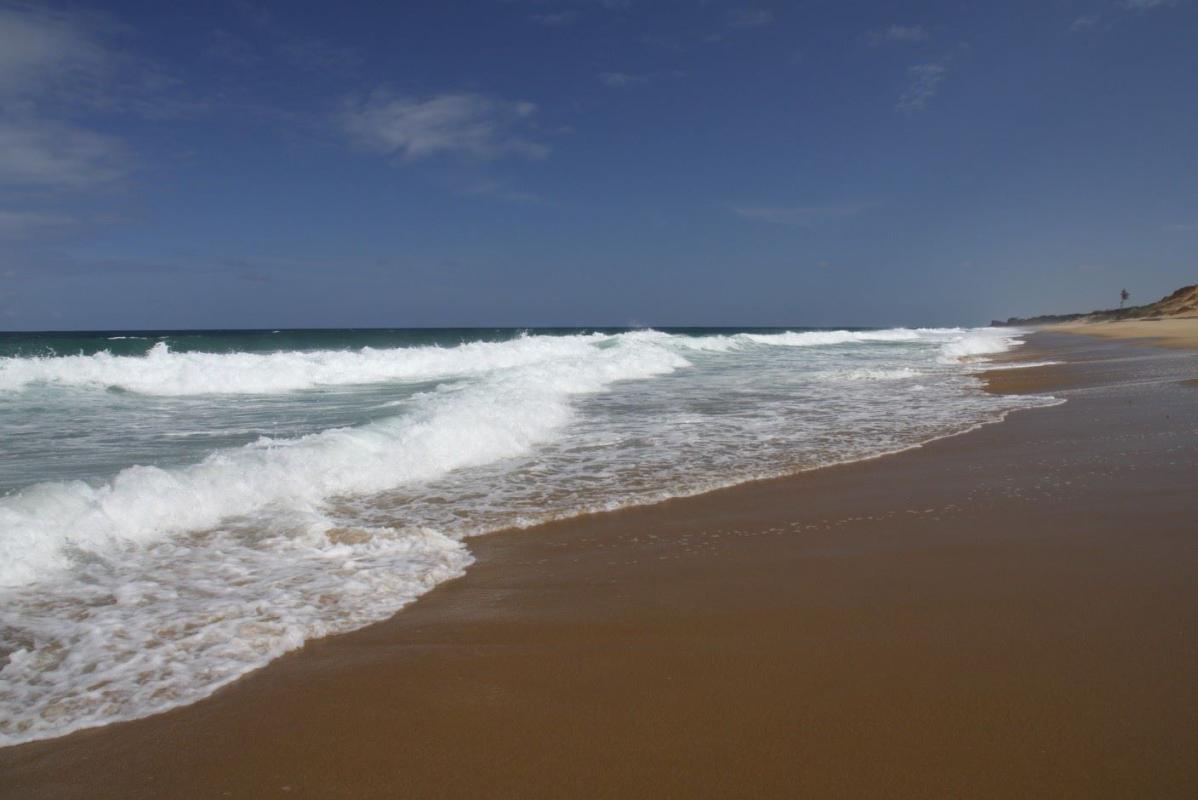
Changing Tides and Africa’s Blue Economy
08 Jun 2023
The theme for this year’s World Oceans Day (8 June) is “Planet Ocean: Tides are Changing.” Considering this theme, we have to ask two key questions: How important are the oceans for Africa and what role do they play in its development? Could Africa’s blue economy be a changing tide?
The African continent has a coastline of over 30,000 kilometres and to that we can add the coastlines of African island nations, notably Madagascar. These coasts boarder on over 13 million square kilometres of Africa’s Exclusive Economic Zone (EEZ) over which African countries have sovereignty. This EEZ is significantly larger than the Sahara’s nine million square kilometres and provides livelihoods for many millions of people.
With over 100 million Africans living near the coast, its contribution to their livelihoods and the sustainability of this contribution are key issues for ocean management. Key sectors in the blue economy include fisheries, aquaculture, tourism, transport, ports, coastal mining, and energy. According the United Nations Economic Commission for Africa’s policy handbook for the blue economy,
“The Blue Economy as a mechanism to support and sustain rapid and sustainable development in Africa is timely and deserving of appropriate policy attention. Through the Blue Economy framework, both coastal and land-locked States can harness opportunities, which could yield mutual benefits, including the provision of efficient and coordinated services to each other as well as access to resources.”
The increasing recognition of the importance of the blue economy is a changing tide for African development. This is evidenced in the establishment of a Blue Economy Division in the African Union Commission which addresses the following five thematic areas:
- Fisheries, aquaculture, conservation, and sustainable aquatic ecosystems
- Shipping/transportation, trade, ports, maritime security, safety, and enforcement
- Coastal and maritime tourism, climate change, resilience, environment, infrastructure
- Sustainable energy and mineral resources and innovative industries; and
- Polices, institutional and governance, employment, job creation and poverty eradication, innovative financing
Similarly, African countries are establishing blue economy strategies, programmes, and implementing agencies. The South African government, for example, has provided leadership with its Operation Phakisa - Oceans Economy now managed under the Department of Forestry, Fisheries, and the Environment. World Wide Fund for Nature South Africa (WWF South Africa) has further highlighted the importance of South Africa’s blue economy:
“South Africa’s rich and productive coastal waters support thousands of jobs and contribute millions of rand to the national economy each year, with coastal goods and services estimated to contribute 35% to South Africa’s gross domestic product (GDP).”
However, WWF South Africa also warns that the country’s blue economy is “threatened by unsustainable use and ineffective management.” They call for a number of measures to enhance sustainability including “an integrated approach to ocean management which recognises the full range of interactions within an ecosystem (including social systems),” and “supporting responsible suppliers and sellers who source sustainable seafood from well-managed, sustainable fisheries.”
Not just in South Africa, but across the continent, the tide is changing with an increasing focus on the great potential that Africa’s oceans offer for economy development, but also with a recognition of the critical need to put in place measures that will ensure that the use of ocean resources is sustainable.
A particular exciting area for the blue economy is ocean-based mitigation of climate change. There is a growing interest in offsetting greenhouse gas emissions though mangrove restoration projects. The market for carbon credits has incentivised mangrove projects across the continent.
In Senegal, for example, the Paris-based Livelihoods Fund restored almost 8,000 hectares of mangroves by planting 79 million trees and offsetting a half a million tonnes of carbon. In Kenya, the community-based Mikoko Pamoja project is generating over USD20,000 annually from the sale of mangrove carbon credits. In Mozambique, Blue Forest is proposing a USD 15 million dollar investment to replant 200 million mangrove tress to offset carbon emissions.
An emerging market that has great potential in Africa is ocean-based carbon dioxide removal. As the World Resources Institute explains, the aim is “to leverage the ocean’s natural chemical and biological processes to absorb and store more carbon from the atmosphere.” Many of Africa’s EEZ’s could be available for new biotic approaches beyond planting mangroves such as seaweed cultivation or ocean fertilisation to stimulate phytoplankton growth.
There is also a role in the blue economy for maritime security and thus it is encouraging to see that the Centre for Military Studies at Stellenbosch University has just co-organised an international symposium on the Blue Ocean Economy and Maritime Security in Africa which recognised “the need for concerted efforts at improving African Blue Economy and Maritime Security through collaborative efforts in the region.” The call for continent-wide collaboration on the blue economy and maritime security is another promising changing tide for Africa.
-

Prof Francis Vorhies
Director & Professor Extraordinary
We support the free flow of information. Please share:
More content
-

What Foot and Mouth Disease-free means for South Africa’s game meat trade
Ms Lydia Daring Bhebe…Explore the latest developments in South African provinces achieving and maintaining Foot and Mouth Disease (FMD) free status…
Articles -

The world wildlife trade regulator is 50 – here’s what has worked and what needs to change
Daniel Challender…Most countries implement Cites, the Convention on International Trade in Endangered Species of Wild Fauna and Flora as…Articles -

Enabling Sustainable Wildlife Trade
Prof Francis VorhiesEnabling sustainable wildlife trade is a key policy measure for growing Africa's wildlife economy. In this respect, CITES…
Articles -

Has CITES become too complicated to be effective?
Prof Francis VorhiesGovernments agreed to the text of CITES in the 1970s, which is quite straightforward. However, the agreement’s implementation…
Articles -

From poachers to providers: Can Africa's wild meat market save wildlife?
Dr Wiseman NdlovuHave you ever considered how wild meat could be more than just a cultural staple but also a…
Articles -

As a fellow of the African Wildlife Economy Institute (AWEI), I am excited to attend the upcoming 3rd…
Articles -

A theory of change to improve conservation outcomes through CITES
Dr Michael 't Sas-Rolfes…Here we articulate the implied theory of change (ToC) underpinning the design and operation of CITES (Convention on...
2025Research -

Wild Meat Value Chain Integration Systems: Opportunities for Value Chain Formalisation and Scaling in Africa
Dr Wiseman Ndlovu…Establishing a legal, safe and sustainable wild meat sector promises to potentially reduce demand for illegally sourced meat...
2025Research -

AWEI's 2024 Wildlife Economy Dialogue Series
Ms Emily TaylorRediscover 2024: A year of insight and inspiration
In 2024, AWEI proudly hosted three ground-breaking dialogue series in…
Articles
Get updates by email
Through impactful research, stakeholder engagement, and professional development, AWEI is supporting the wildlife economy across Africa. Please subscribe for occasional updates on our work and forthcoming events.
Sign up for a quarterly dose of AWEI insights
In a complex and changing world, AWEI generates strategic ideas, conducts independent analysis on wildlife economies, and collaborates with global scholar-practitioners to provide training and expertise for biodiversity conservation, climate resilience, and inclusive economic opportunities in Africa.
